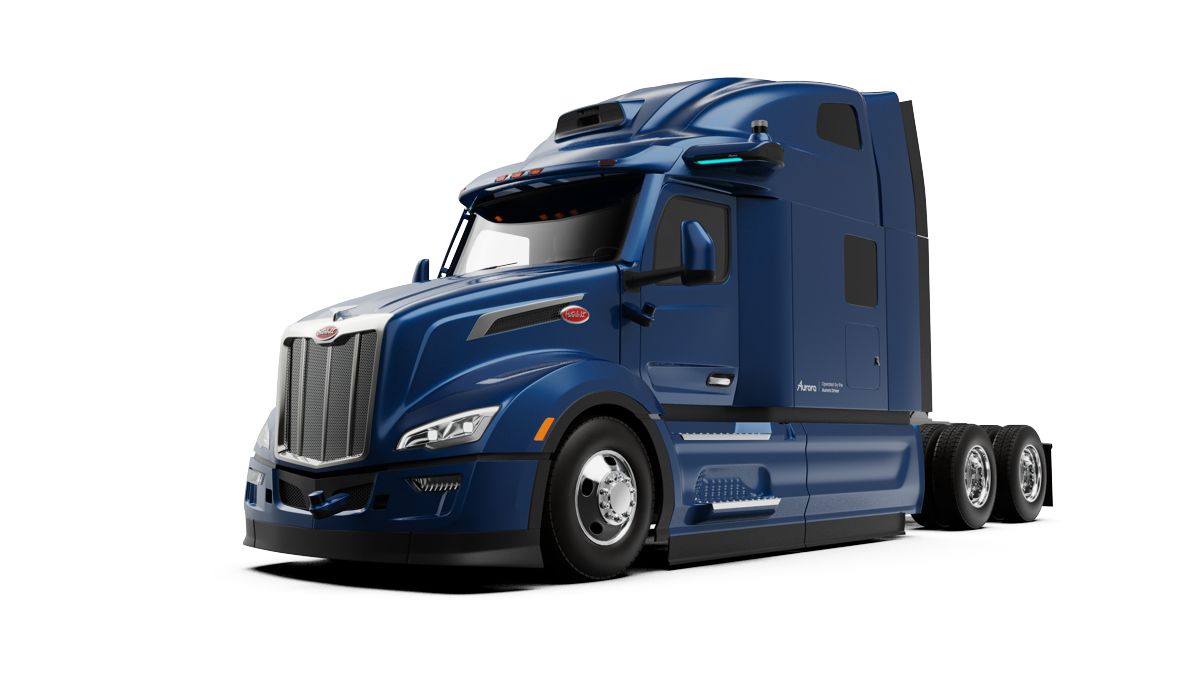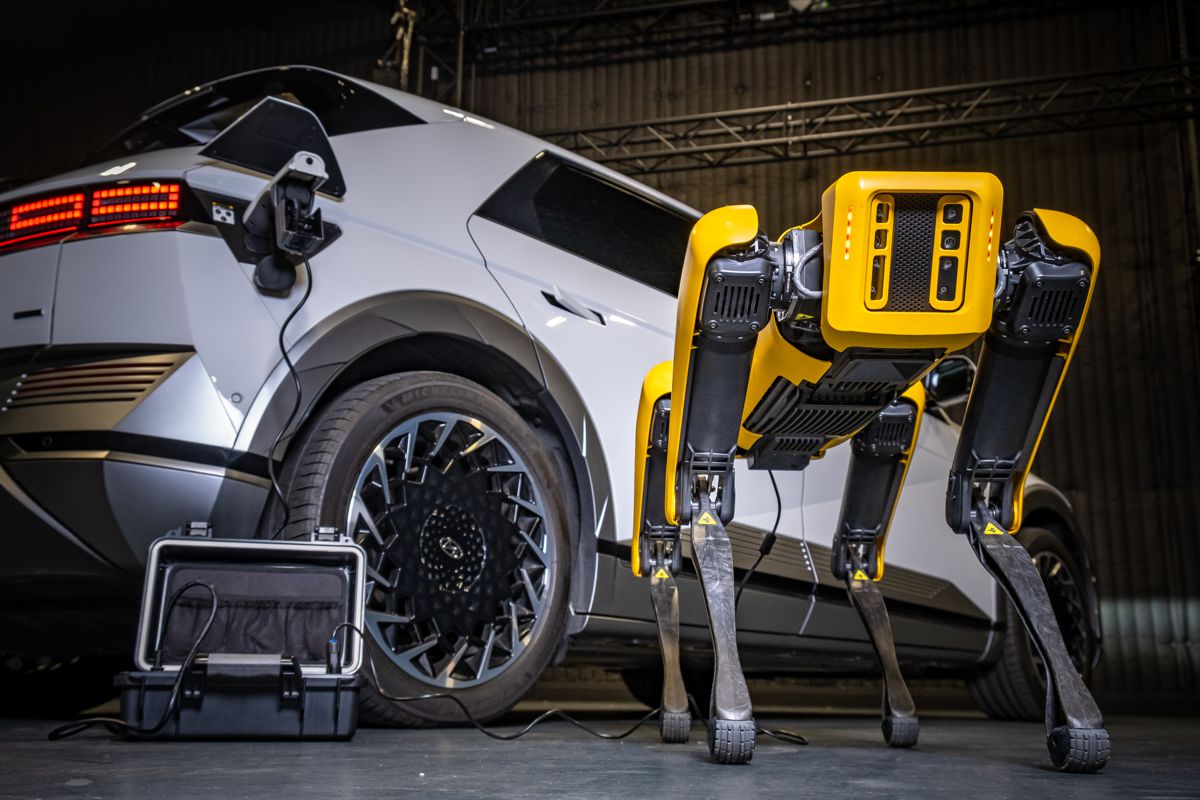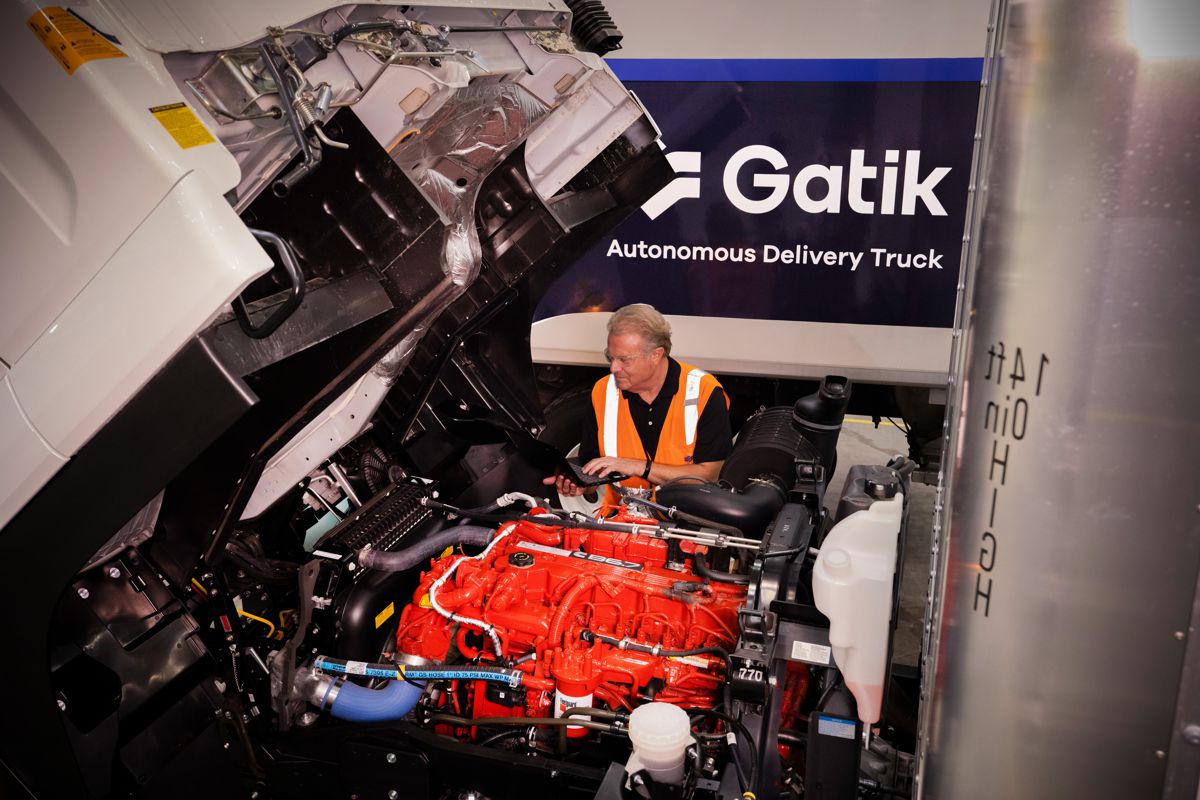Western Digital reimagining the Hard Drive with flash-enhanced drive architecture
At the company’s HDD Reimagine event today, Western Digital Corp., introduced a new flash-enhanced drive architecture that breaks traditional boundaries of storage.
Building on the company’s unique ability to innovate with HDD and flash, the new storage architecture with OptiNAND™ technology optimizes and integrates HDDs with iNAND® embedded flash drives. This gives customers – like hyperscale cloud, CSPs, enterprises, smart video surveillance partners, NAS suppliers and more – a solution to meet the exponential growth in data creation by delivering the capacity, performance and reliability needed to store vast amounts of data today and well into the future.
Leveraging industry-first technologies including triple-stage actuator (TSA) and HelioSeal® technology, the first products featuring the new drive architecture will deliver an unsurpassed 2.2TB per platter, extending capacity gains on proven ePMR technology. Setting a new industry milestone, Western Digital has shipped samples of new nine-disk, 20TB ePMR flash-enhanced drives with OptiNAND technology to select customers.
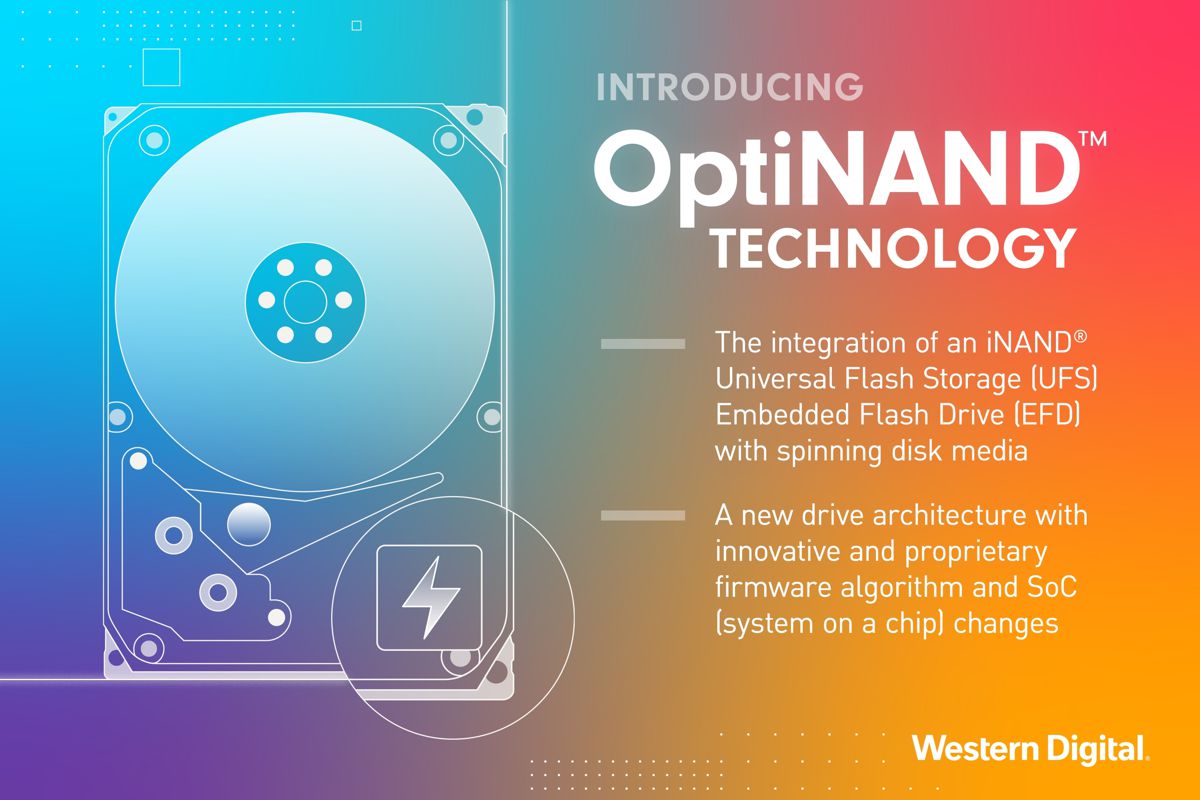
“Western Digital has a history of hard drive architecture innovations, such as when HGST (now part of Western Digital) first hermetically sealed and shipped helium HDDs in 2013,” said Ed Burns, research director for hard disk drives at IDC. “Driven by the growth of AI, ML, blockchain, IoT, sensors and more, there’s no doubt that new storage innovations are needed to store and protect today’s data growth, especially at scale. As the only company manufacturing both flash and HDDs, Western Digital can uniquely leverage their in-house capabilities to extend the areal density curve of ePMR drives for generations to come, helping customers meet the growing demands of a digital economy.”
“This new architecture is a natural extension of Western Digital’s strengths and capabilities, delivering a new evolution of storage to the market,” said Billy Chen, vice president of New H3C Group, president of Compute and Storage Product Line. “As an early customer, the OptiNAND technology is exciting as it will help us meet our storage needs for years to come.”
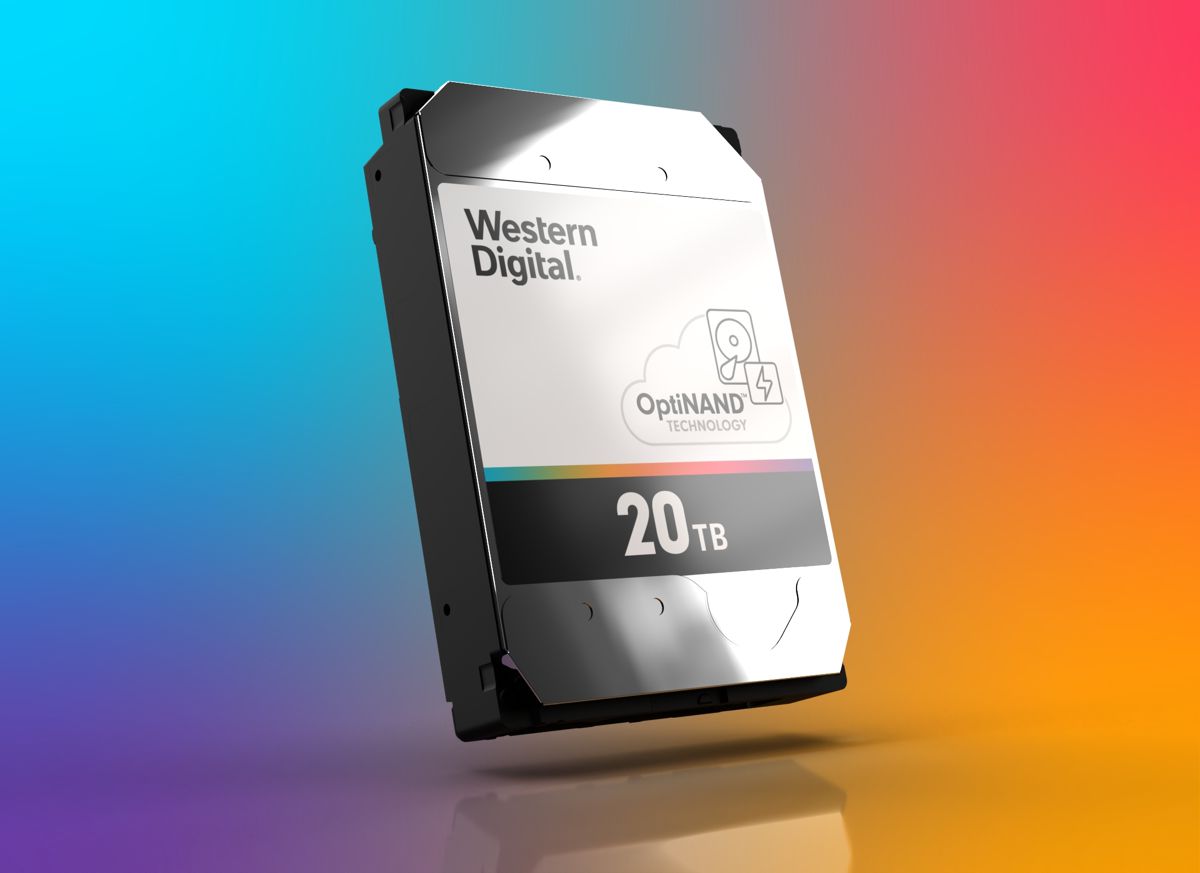
New Flash-Enhanced Drive with OptiNAND Technology
Unlike a hybrid drive where flash is used to store user data, the new architecture is a breakthrough in storage that works differently, enabling advances on multiple dimensions of storage capability.
By adding vertically integrated iNAND to its world-class HDDs, and with enhanced firmware algorithm and SoC innovations, Western Digital’s flash-enhanced drives with OptiNAND technology deliver improved capacity, performance and reliability to help customers meet growing storage demands. A technology brief can be found here. Highlights include:
- Capacity: The drive works smarter, with enhanced firmware algorithms taking advantage of expanded metadata that has been offloaded to the iNAND, enabling more tracks per inch (TPI) with resulting increased areal density.
- Performance: Drive latency is improved with proprietary optimizations to drive firmware focused on requiring fewer adjacent track interference (ATI) refreshes and reducing the need for write cache flushes in write cache-enabled mode.
- Reliability: Nearly 50x more customer data can be retained in the event of an emergency power off (EPO) scenario, and with Western Digital’s unique capabilities in vertically integrated supply, design, development, testing and qualification of flash-enhanced drives, customers can count on the drive’s reliability.
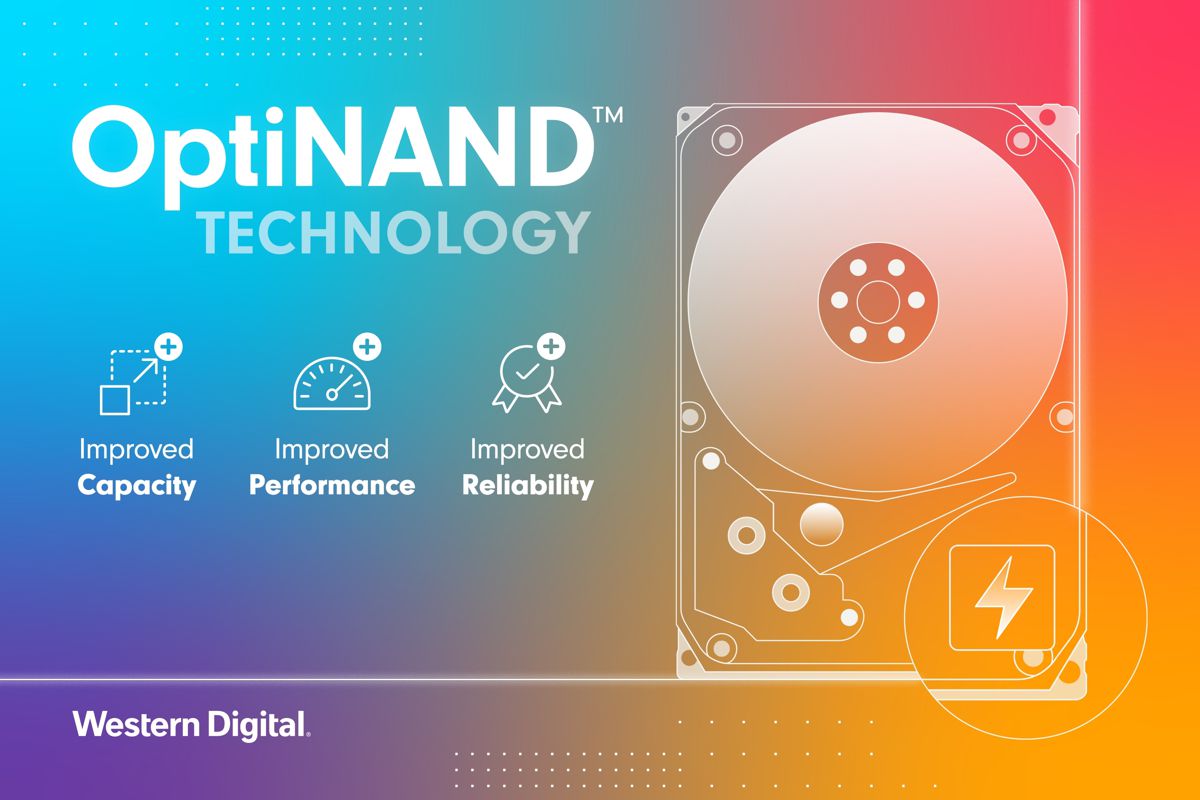
“With our IP and world-class development teams in HDD and flash, we are able to continuously push the boundaries of innovation to improve our customers’ storage infrastructure,” said Siva Sivaram, president of Global Technology and Strategy, Western Digital. “We have had an extraordinary journey of HDD innovation.
“We changed everything with HelioSeal in 2013; were first to ship energy-assisted HDDs in volume in 2019; and now we’re going to lead again with OptiNAND technology. This architecture will underpin our HDD technology roadmap for multiple generations as we expect that an ePMR HDD with OptiNAND will reach 50TB in the second half of the decade.”






